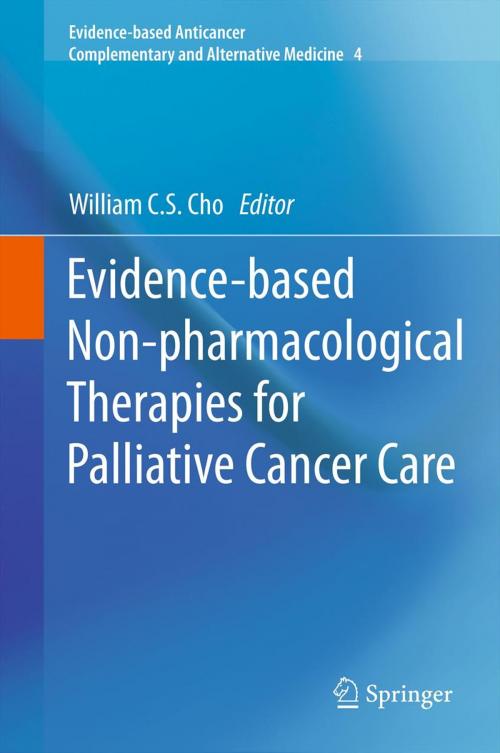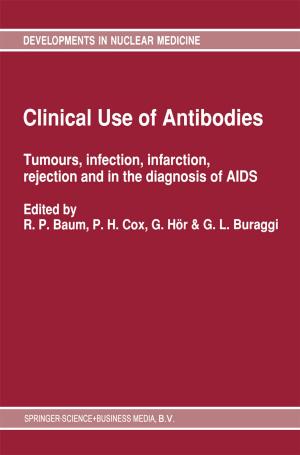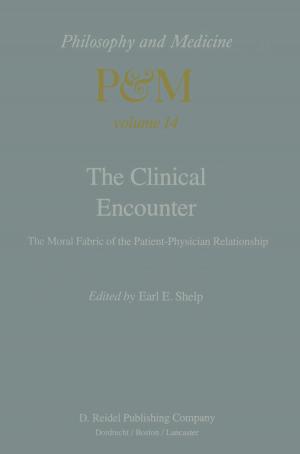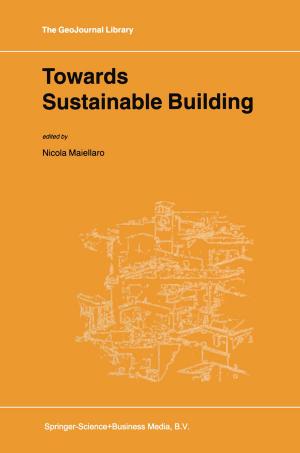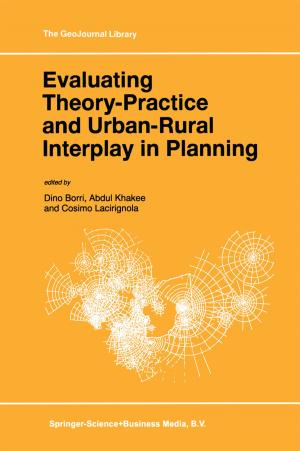Evidence-based Non-pharmacological Therapies for Palliative Cancer Care
Nonfiction, Health & Well Being, Medical, Alternative & Holistic Medicine, Acupuncture, Alternative Medicine| Author: | ISBN: | 9789400758339 | |
| Publisher: | Springer Netherlands | Publication: | January 30, 2013 |
| Imprint: | Springer | Language: | English |
| Author: | |
| ISBN: | 9789400758339 |
| Publisher: | Springer Netherlands |
| Publication: | January 30, 2013 |
| Imprint: | Springer |
| Language: | English |
Cancer is one of the leading killers in the world and the incidence is increasing, but most cancer patients and cancer survivors suffer much from the disease and its conventional treatments’ side effects. In the past, clinical data showed that some complementary and alternative medicine (CAM) possessed anticancer abilities, but some clinicians and scientists have queried about the scientific validity of CAM due to the lack of scientific evidence. There is great demand in the knowledge gap to explore the scientific and evidence-based knowledge of CAM in the anticancer field. With this aim, a book series is needed to structurally deliver the knowledge to readers.
Integrative therapies comprise a variety of non-pharmacological interventions that assist in alleviating physical and psychological symptoms. Apart from being a life-threatening disease, cancer and its therapy are usually associated with a significant deterioration in the quality of life. There is growing evidence that non-pharmacological therapies provide symptom and pain management in cancer palliation. This volume is a specialised book presenting the research evidence relevant to the application of a range of commonly used non-pharmacological interventions in supportive cancer care, including massage, acupressure, Qigong, yoga, mind-body therapy, mindfulness-based intervention, and aromatherapy. A number of scientific researches and clinical studies support that these therapies offer potential beneficial effects for cancer patients in terms of reducing pain, anxiety, and other symptoms. Indeed, non-pharmacological therapies are increasingly gaining acceptance in the healthcare community as complementary to conventional cancer treatments. Most of them are non-invasive, inexpensive, and useful in improving quality of life, and they may be accessed by patients themselves.
Cancer is one of the leading killers in the world and the incidence is increasing, but most cancer patients and cancer survivors suffer much from the disease and its conventional treatments’ side effects. In the past, clinical data showed that some complementary and alternative medicine (CAM) possessed anticancer abilities, but some clinicians and scientists have queried about the scientific validity of CAM due to the lack of scientific evidence. There is great demand in the knowledge gap to explore the scientific and evidence-based knowledge of CAM in the anticancer field. With this aim, a book series is needed to structurally deliver the knowledge to readers.
Integrative therapies comprise a variety of non-pharmacological interventions that assist in alleviating physical and psychological symptoms. Apart from being a life-threatening disease, cancer and its therapy are usually associated with a significant deterioration in the quality of life. There is growing evidence that non-pharmacological therapies provide symptom and pain management in cancer palliation. This volume is a specialised book presenting the research evidence relevant to the application of a range of commonly used non-pharmacological interventions in supportive cancer care, including massage, acupressure, Qigong, yoga, mind-body therapy, mindfulness-based intervention, and aromatherapy. A number of scientific researches and clinical studies support that these therapies offer potential beneficial effects for cancer patients in terms of reducing pain, anxiety, and other symptoms. Indeed, non-pharmacological therapies are increasingly gaining acceptance in the healthcare community as complementary to conventional cancer treatments. Most of them are non-invasive, inexpensive, and useful in improving quality of life, and they may be accessed by patients themselves.
